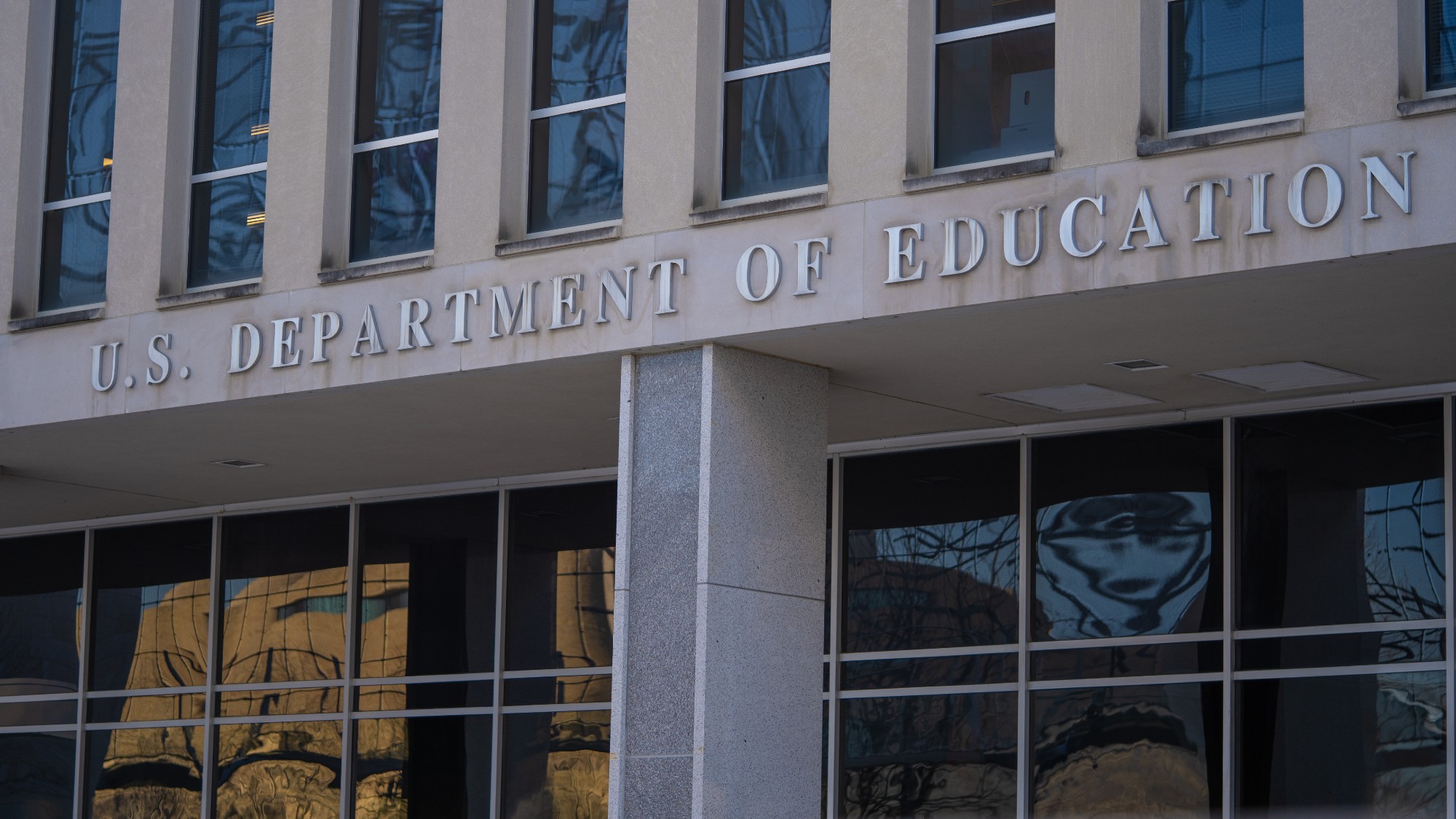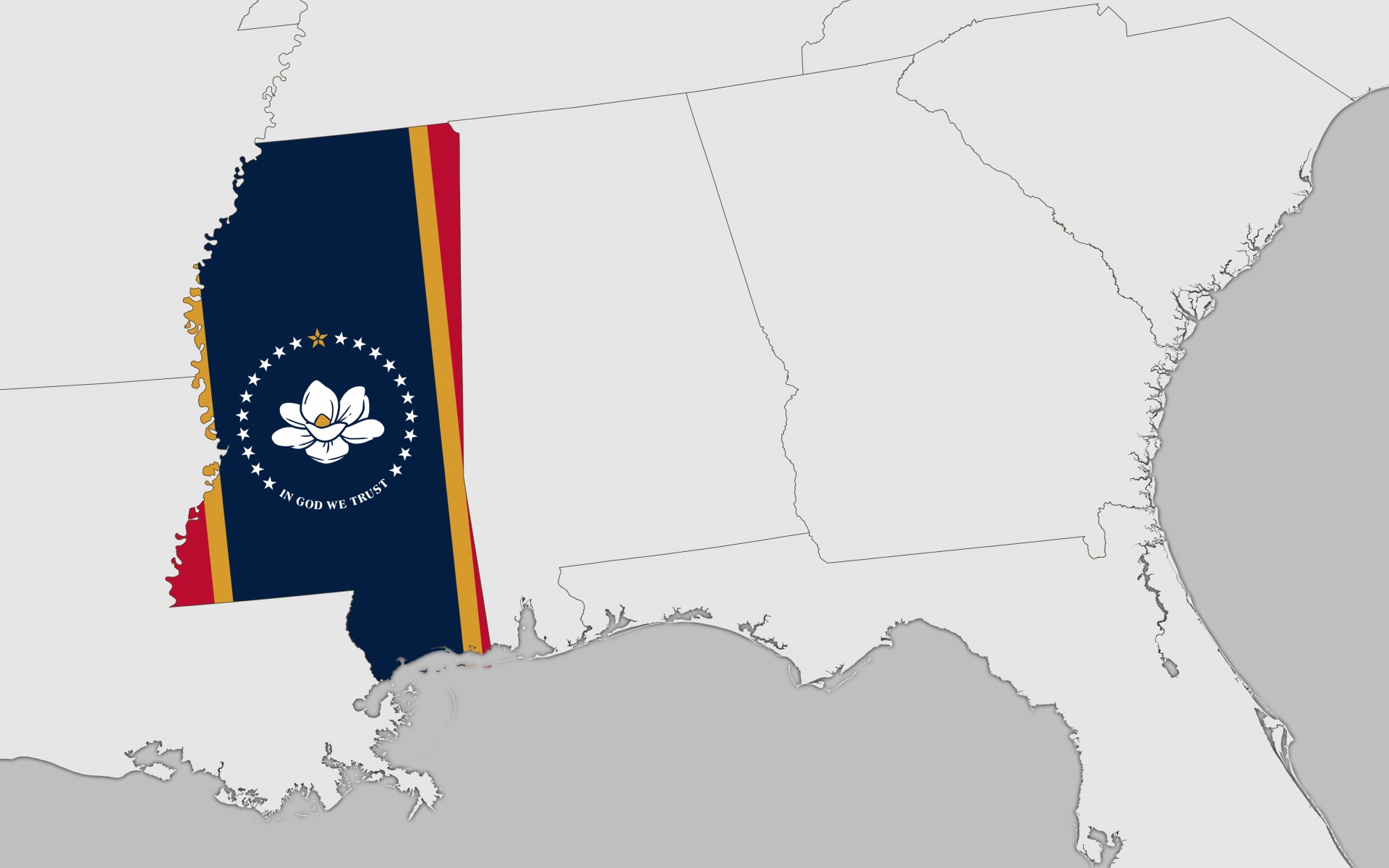The Department of Education is meant to 'advise and assist' US schools
K-12 gets the attention. The money goes to higher ed.


A free daily email with the biggest news stories of the day – and the best features from TheWeek.com
You are now subscribed
Your newsletter sign-up was successful
Donald Trump comes into office having pledged the elimination of the U.S. Department of Education. His administration will send "all education and education work and needs back to the states," he said in 2023. What does the Department of Education specifically do?
The Education Department was created by President Jimmy Carter in 1980 with a mission to "advise and assist" the nation's schools, said CBS News. The department has a budget of around $228 billion, but it's not the primary funder of your neighborhood schools: Only about 8% of local school budgets come from federal dollars, with the rest coming from state and local taxes. The department also undergirds federal student aid programs for colleges and universities. That money gives the feds leverage over education policy across the country. "It may have influence," said Nicola Alexander, an associate dean at the University of Minnesota. "I wouldn't say it has control."
K-12: Supporting low-income students
Federal funding might make up a small portion of K-12 school budgets, but it's a critical part. The department backs local schools "primarily through programs supporting economically disadvantaged school systems," said USAFacts. The department disperses $18 billion a year for Title I programs for children from low-income families. It also spends $15 billion a year on special education funding, as well as $6 billion on other school improvement programs. The department additionally oversees the National Center for Education Statistics to "better analyze enrollment, finances, and performance metrics" at schools across the country, said USAFacts.
The Week
Escape your echo chamber. Get the facts behind the news, plus analysis from multiple perspectives.

Sign up for The Week's Free Newsletters
From our morning news briefing to a weekly Good News Newsletter, get the best of The Week delivered directly to your inbox.
From our morning news briefing to a weekly Good News Newsletter, get the best of The Week delivered directly to your inbox.
The department enforces laws that "protect civil rights and disability rights in public schools," said Education Week. That includes making sure that the needs of students with disabilities are being met — and being on guard against racial and sexual discrimination within schools. The department's supporters say it "plays an important role in ensuring students are treated fairly," the outlet added.
Higher ed: Financial aid and Title IX
The Department of Education's K-12 efforts get the most public attention, but its "biggest expenditure is on higher education," said The New York Times. More than 70% of its budget goes to the federal student loan program — $90 billion a year in student loans, and another $39 billion for Pell Grants to low-income students. Some education advocates worry about what Trump's pledges to eliminate the department mean for that financial aid, said Inside Higher Ed: His first administration proposed "large cuts to financial aid" — including a proposed $5.6 billion cut in 2020.
The department also enforces Title IX, the 1972 law that prohibits colleges and universities from discriminating against students on the basis of sex. That law has been used to "provide equal opportunities to women's sports athletes," said Front Office Sports. But that enforcement has been spotty at times, and one investigation found that 87% of major universities were out of compliance. The Biden administration has interpreted the law to apply to transgender people, though the Trump administration will probably reverse course. "Trump would not need Congressional authority to make changes on Title IX's guidance," said Time.
Congress, of course, would have to approve eliminating the Department of Education. Which means the department continues to exist for now. After the election, NPR said, Trump said he would appoint Linda McMahon — best known from the world of professional wrestling — as his Secretary of Education.
A free daily email with the biggest news stories of the day – and the best features from TheWeek.com
Joel Mathis is a writer with 30 years of newspaper and online journalism experience. His work also regularly appears in National Geographic and The Kansas City Star. His awards include best online commentary at the Online News Association and (twice) at the City and Regional Magazine Association.
-
 Political cartoons for February 19
Political cartoons for February 19Cartoons Thursday’s political cartoons include a suspicious package, a piece of the cake, and more
-
 The Gallivant: style and charm steps from Camber Sands
The Gallivant: style and charm steps from Camber SandsThe Week Recommends Nestled behind the dunes, this luxury hotel is a great place to hunker down and get cosy
-
 The President’s Cake: ‘sweet tragedy’ about a little girl on a baking mission in Iraq
The President’s Cake: ‘sweet tragedy’ about a little girl on a baking mission in IraqThe Week Recommends Charming debut from Hasan Hadi is filled with ‘vivid characters’
-
 American universities are losing ground to their foreign counterparts
American universities are losing ground to their foreign counterpartsThe Explainer While Harvard is still near the top, other colleges have slipped
-
 ‘Ghost students’ are stealing millions in student aid
‘Ghost students’ are stealing millions in student aidIn the Spotlight AI has enabled the scam to spread into community colleges around the country
-
 How Mississippi moved from the bottom to the top in education
How Mississippi moved from the bottom to the top in educationIn the Spotlight All eyes are on the Magnolia State
-
 Oklahoma fires instructor over gender essay grade
Oklahoma fires instructor over gender essay gradeSpeed Read
-
 Education: More Americans say college isn’t worth it
Education: More Americans say college isn’t worth itfeature College is costly and job prospects are vanishing
-
 The Trump administration’s plans to dismantle the Department of Education
The Trump administration’s plans to dismantle the Department of EducationThe Explainer The president aims to fulfill his promise to get rid of the agency
-
 How will new V level qualifications work?
How will new V level qualifications work?The Explainer Government proposals aim to ‘streamline’ post-GCSE education options
-
 England’s ‘dysfunctional’ children’s care system
England’s ‘dysfunctional’ children’s care systemIn the Spotlight A new report reveals that protection of youngsters in care in England is failing in a profit-chasing sector
